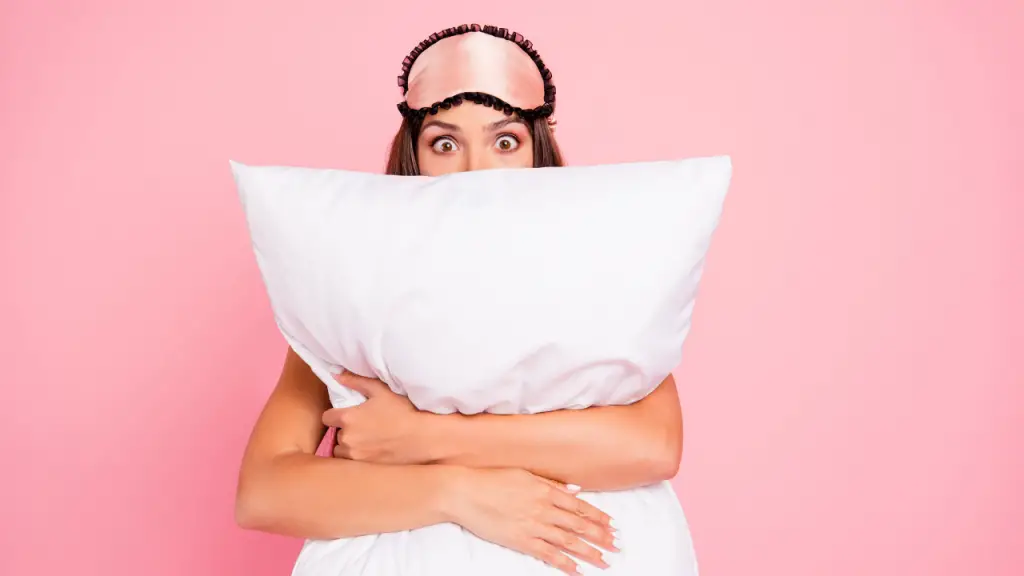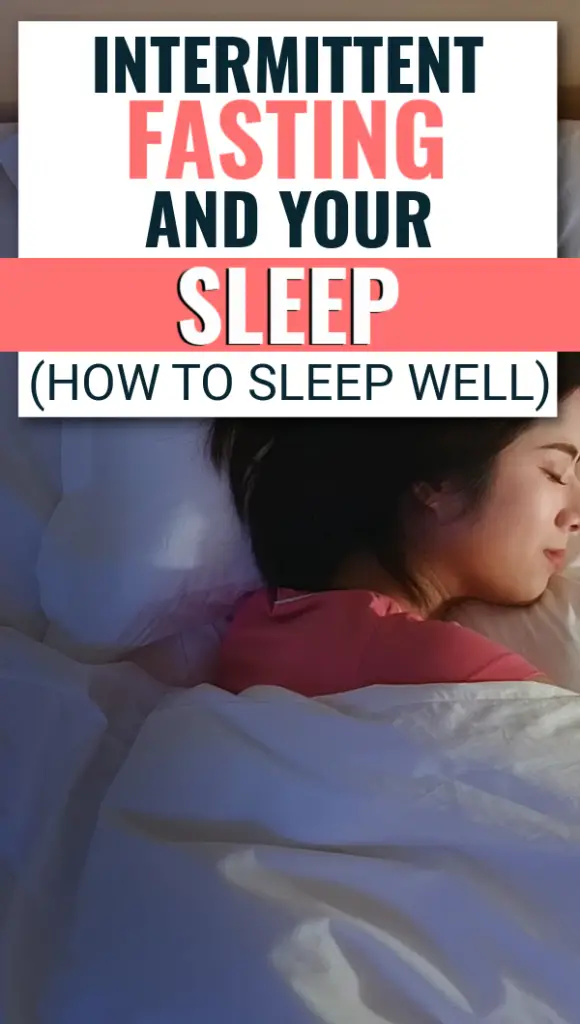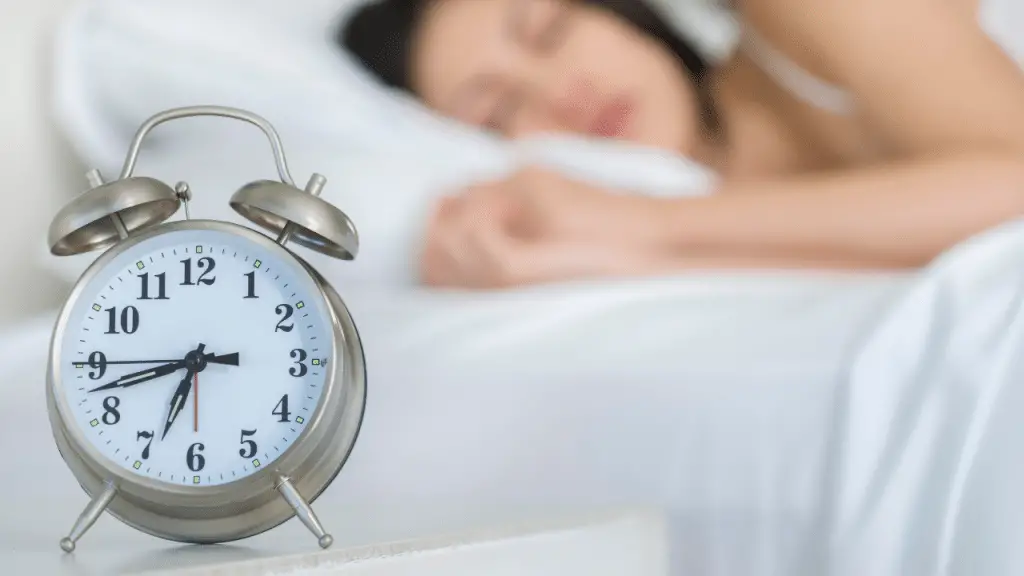Most people have heard that eating too close to bedtime can interfere with sleep. We know there is a connection between eating and sleeping. What about intermittent fasting and sleep? What if you don’t eat for more than 12 hours each day? How does that affect your sleep?
How Intermittent Fasting Impacts Your Sleep
Consistent schedules help improve sleep. That’s why a typical sleep advice is to always go to bed around the same time. Your body receives cues from its environment and prepares for what’s coming next.

Cycles That Impact Sleep
Intermittent fasting is just a cycle of eating and fasting. There are other daily cycles that impact your sleep:
- Light/dark
- Temperature (warmer vs cooler)
- Activities such as exercise and rest
Anything that helps establish a predictable pattern is beneficial, but light is the most powerful tool that impacts your circadian rhythm. Darkness is the biggest cue to your body that it’s time to sleep. That’s why it’s so important to limit light before bed you struggle with falling asleep.

Intermittent Fasting and Sleep
Apart from contributing to a predictable routine, how does intermittent fasting impact your sleep?
Intermittent Fasting and Metabolic Health
One important aspect of intermittent fasting and sleep is metabolic health. There is a bidirectional relationship between sleep and metabolic health. Poor sleep contributes to metabolic syndrome because it contributes to an increase in caloric intake. On the other hand, improving your metabolic health (markers such as blood pressure, hip/waist measurements, cholesterol, and weight) improves your sleep.
Intermittent Fasting and Hormonal Function
Furthermore, there is an interrelationship between your hormones (sex hormones, thyroid hormones, stress hormones, and growth hormones) and your circadian rhythm. Intermittent fasting improves your hormonal function in many ways:
- Insulin levels: intermittent fasting lowers your insulin levels.
- Human growth hormone: Human growth hormone production increases when fasting, which improves fat burning and muscle gain.
- Sex hormones are closely related to metabolic health: yes, I have said already, everything is interconnected!
Intermittent Fasting and Inflammation
Lastly, intermittent fasting has an effect of inflammation. And guess what? You circadian clock and your inflammatory reaction are interconnected.
This article is a great read that puts everything together and explains how intermittent fasting affects your lifespan and your circadian rhythm.

How to Use Intermittent Fasting to Improve Your Sleep
Now that you understand better the relationship between intermittent fasting and sleep, you may wonder what’s the best approach to start taking advantage of intermittent fasting to improve your sleep.
Intermittent Fasting and Sleep: The Basics
There are many ways to start practicing intermittent fasting. I have a simple post to help you choose your intermittent fasting method (How to Decide Which Intermittent Fasting Method Is Best for You).
However, here’s what you should keep in mind when you practice intermittent fasting to improve your sleep:
- Fasting 12 hours a day is a good starting point that will reinforce your circadian rhythm.
- It may take some time to see improvements in your sleep. Intermittent fasting is not a magic cure.
- The relationship between sleep and intermittent fasting isn’t just about your eating and fasting windows. The calorie restriction that comes with it contributes to improving your sleep. Don’t stuff yourself during your eating window.
- You don’t need to pick a daily intermittent fasting. Fasting for 24 hours twice a week is enough to improve your circadian rhythm.

What If You Can’t Sleep on an Empty Stomach
If you have the habit of snacking in the evening, you may struggle with going to sleep without your evening snack. Let me give you suggestions to avoid snacking and an option to take the edge off if going to bed on an empty stomach is really affecting you.
How to Stop Eating in the Evening
Here are some tips you can try to give up snacking in the evening:
- Brush your teeth after dinner.
- Go for a walk when the snacking urge strikes.
- Drink water and/or herbal tea when you want to eat.
- Explore your feelings. Feel the snacking urge. Journal about it, think about its meaning for you.
- Let it pass. Many times throughout the day, you will find that cravings go away after less than one hour.
- Go to bed. You have been for a walk, you drank herbal tea, you spent time exploring your feelings. Going to sleep might just be your next best bet!

When You Are Too Hungry to Go to Sleep
What if you did everything right and find yourself tossing and turning because you feel too hungry to go to sleep? It’s ok, give yourself some grace and grab yourself a banana or a handful of nuts. Don’t binge, but eat just enough to take the edge off your hunger. It may take time to be able to bed without eating, but keep trying. Eventually, you will succeed. Picking an eating window that doesn’t end too early is what worked for me. When I was losing weight using the warrior diet, I would eat between 4 and 8 pm. Since I go to bed between 9 and 10 pm, I never felt hungry. Read more about the Warrior Diet in my post Why You Should Consider the Warrior Diet for Weight Loss.
Natural Remedy to Improve Your Sleep
You are most likely reading this post because you have sleep issues that you are wanting to work on. Did you know that tart cherries have naturally occurring melatonin and can be used as a natural sleep aid? I love the Apothe-Cherry because it helps me sleep so much more soundly.

In Summary
Intermittent fasting and sleep are interconnected in the same way everything else in your body is interconnected. Your body is a complex network of interrelationships that affect everything. To improve your sleep, the best you can do is maintain a healthy lifestyle. Don’t eat too much, eat whole foods, exercise, drink lots of water, don’t spend too much time looking at screens, go out in nature, etc.





